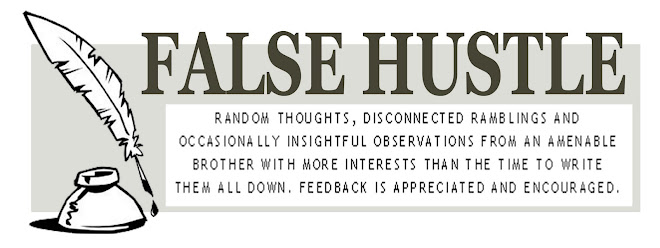Mostly it's because we can't really quantify work ethic. I'd like to think I work hard but, alas, I spend about nine to 10 hours a day talking to people and tapping away on a computer. How does that compare to working in construction, ferrying people around for 14 hours in a cab, approving loans from 9 to 5 or cleaning up school bathrooms?
Methinks that, given a choice, I'd much rather sit at my desk in an air-conditioned newsroom. But no one can tell me that I don't work hard. I just work differently - and I'd like to think my paycheck doesn't really reflect this.
Problem is, lots of people have mistakenly conflated the size of their paycheck with their amount of effort. It's as if, you know, the well-paid among us have cornered the market on blood, sweat and tears.
Well, Ezra Klein elaborates more on problems with the idea of "success as an outcome of effort":
The important variable for success, however, does not seem to be hard work but profession. If you're in a high-value profession, hard work can do you a lot of good. If you're not, it may not do you much good at all. And though anyone can work hard, we're mostly able to admit that not everyone has the specific constellation of opportunities that lets you go to law school, or spend your time goofing off in amateur political punditry. Occupation is rather more useful for understanding why someone's hard work pays off than is their relative level of toil, but since occupation is more clearly contingent on circumstance, and high-value occupations have more obvious barriers to entry, they also raise questions of justice in outcome, and thus have fairly uncomfortable answers for those atop the pyramid. So hard work it is.
.jpg)
No comments:
Post a Comment